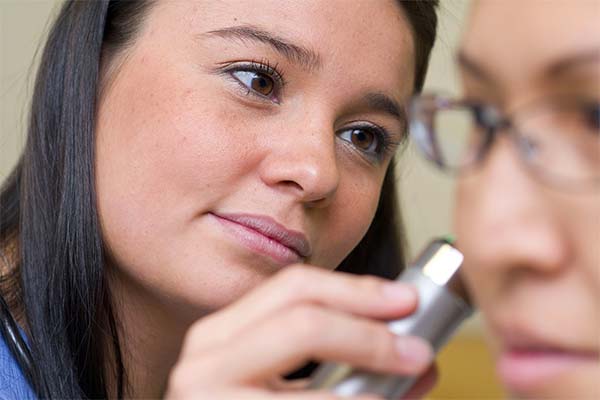
- Details
- By Native News Online Staff
BOZEMAN, Mont. — Backed by $2.5 million in new federal grant funding, Montana State University plans to offer full-ride scholarships to American Indian and Alaska Native students who enroll in its College of Nursing.
The Montana Advantage Nursing Scholarships program is open to all American Indian and Alaska Native undergraduates in the nursing program. Participants must demonstrate financial need and be a member of the school’s Caring For Our Own Program — an initiative designed to encourage more Native Americans and Alaska Natives to enter the nursing field — or MSU’s TRIO Student Support Services program.
“The Caring for Our Own Program has a 20-year track record demonstrating that the nursing shortage in rural and tribal areas of Montana can be solved,” Professor Laura Larsson, director of the Caring For Our Own Program, said in a statement. “This funding will accelerate our progress.”
The five-year grant funding from the U.S. Department of Health and Human Services’ Health Resources and Services Administration will support 175 students total beginning in fall of 2020 through 2025. The university expects to have 24 students enrolled in the program this year and increase to 37 students by the end of the program, according to a statement.
By reducing financial barriers for students, the scholarship program aims to increase Native enrollment and graduation rates to “deliver culturally sensitive health care services to American Indian and Alaska Native people living in remote, rural settings and, to a lesser degree, urban areas,” Larsson stated.
“We know from years of research that having a health care workforce that mirrors the racial or ethnic identities of patients is critical for achieving good health outcomes. Better access to culturally competent, clinically excellent American Indian and Alaska Native nurses will help to meet the health care needs of Montana’s tribal community members,” she said in a statement.
Sarah Shannon, dean of the College of Nursing, said that the grant-funded scholarships will allow MSU to “double our impact” in supporting additional Native students.
“We want to help Montana do a better job of providing health care for the Native American people who were its first citizens,” Shannon added. “We are proud that now we will be able to educate even more American Indian and Alaska Native bachelor’s-prepared nurses ready to provide evidence-based, culturally competent care.”
More Stories Like This
Navajo Nation Signs $19 Million Diné Higher Education Grant Fund Act into LawDr. Shelly C. Lowe to Be Inaugurated as IAIA President March 26–27
Tlingit Language Courses Expand for Students to Learn With Families At-Home
American Education Has Failed Its First People, But Hope Is On The Horizon
Bipartisan Vote Keeps Institute of American Indian Arts Alive and Funded
Help us defend tribal sovereignty.
At Native News Online, our mission is rooted in telling the stories that strengthen sovereignty and uplift Indigenous voices — not just at year’s end, but every single day.
Because of your generosity last year, we were able to keep our reporters on the ground in tribal communities, at national gatherings and in the halls of Congress — covering the issues that matter most to Indian Country: sovereignty, culture, education, health and economic opportunity.
That support sustained us through a tough year in 2025. Now, as we look to the year ahead, we need your help right now to ensure warrior journalism remains strong — reporting that defends tribal sovereignty, amplifies Native truth, and holds power accountable.
 The stakes couldn't be higher. Your support keeps Native voices heard, Native stories told and Native sovereignty defended.
The stakes couldn't be higher. Your support keeps Native voices heard, Native stories told and Native sovereignty defended.
Stand with Warrior Journalism today.
Levi Rickert (Potawatomi), Editor & Publisher

